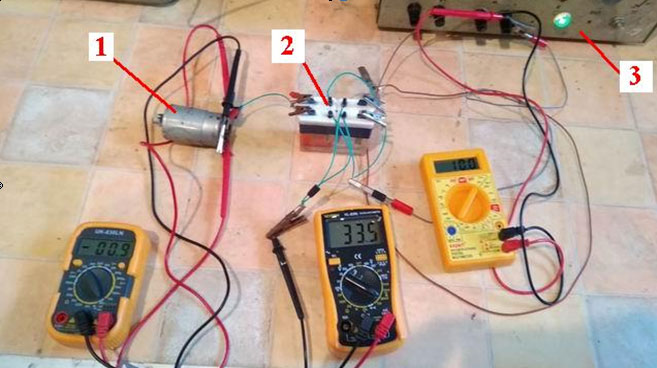Scientific principles and patterns of electrochemical procceses of formation of ordered nanoscale and microlevel chemotronic materials
The created scientific bases and regularities of electrochemical formation of ordered nano- and micro-level materials of hemotronics are based on a clear separation of the influence of the charge transport mechanism of the limiting stage of the electrochemical process on the stratification of the structure of the surface oxide and metal phases of the electrode. The structuring of semiconductor phases is governed by the ratio of gradients of the electric field and charge carriers in liquid and solid phases. Nano-level structuring requires control of gradients in the semiconductor phase and has an inverse relationship with the stage of charge transfer through the separation line "electrode-electrolyte". Micro-level structuring requires gradient control in solution and regulates mass transfer in 3D electrodes. The direction of growth of the solid phase corresponds to the predominant vector of the electric field, leveling tangential distortions which can be only for the magnitudes of gradients, achievable impulse regime. It is possible to guarantee control of transport of charges in a semiconductor in high-frequency pulse-reverse mode, since at the frequency of 10 kHz the effect of transfer on the edge of the semiconductor-solution and in the solution is leveled. And at frequencies of about 100 kHz it is achieved a critical delay of the gradient of stoichiometry of titanium dioxide from the gradient of an electric field, which results in the crushing and sealing of the semiconductor phase. For these reasons, the formation of metal phases of a given size is possible only on the micro level, and semiconductor structures with a characteristic size of less than 10 nm can not be formed by methods of electrochemistry of aqueous solutions. The created scientific bases allowed theoretically to substantiate the new method of protection against corrosion of electrodes from valve metals intended for replacement of noble metals in the elements of hemotronics and cathodic protection systems, methods of improving the technical characteristics of 3D-electrodes of gas sensors. For the first time it was shown the possibility of creating electrochemical diodes with one or both titanium electrodes.

| Attachment | Size |
|---|---|
| 206.84 KB |




